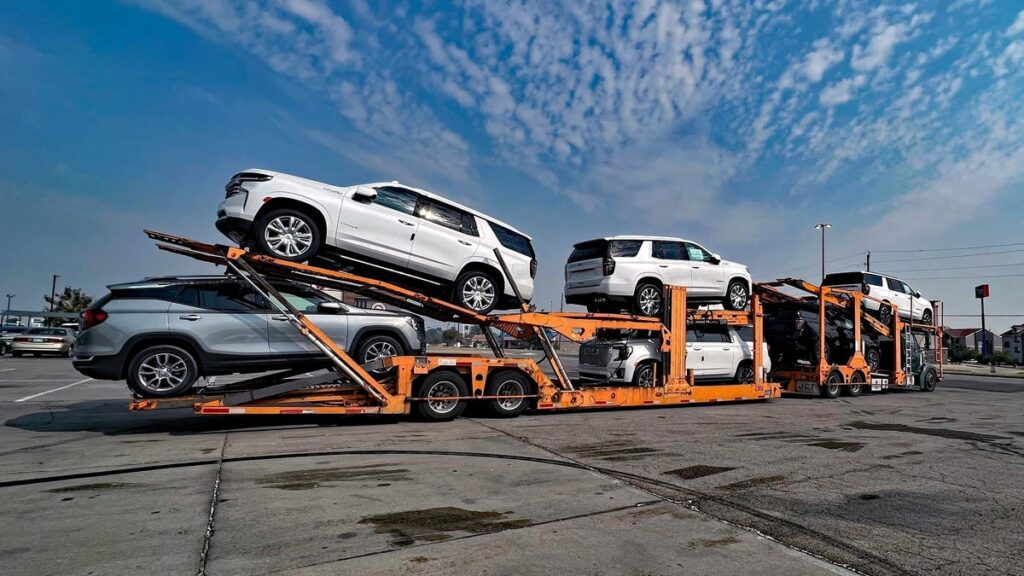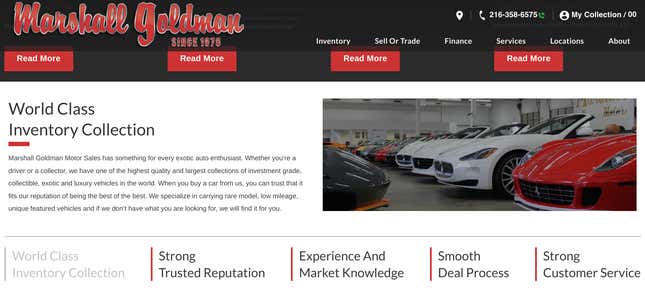How To Buy A Car Remotely From A Dealer Without Getting Ripped Off

Buying a car can be a tricky process, and things get even more complicated when the dealer isn’t in your region, meaning you can’t do the transaction in person. However, shopping outside of your area can often mean finding a better car or a better deal. You just need to take a few extra precautions to make sure you don’t get hosed.
Feds Want To Stop Shady Car Sales
We recently covered a story about a man who attempted to purchase a Lamborghini Urus from a used car dealer in Ohio. The buyer wired $30,000 to the dealer, but he still doesn’t have his Lamborghini and is fighting to get his money back. As our sharp commenters rightfully pointed out, there were some red flags with this purchase and a few lessons can be learned so that future buyers don’t fall into a similar trap. These tips are especially important if you are purchasing some high-dollar hardware.
Is The Price Suspiciously Cheap?
If you are hunting for a certain car and find something that seems way underpriced compared to similar vehicles with the same parameters, ignore the voice that says, “I just found the deal of the decade!” and replace it with “I don’t know about this.” Any legitimate seller, whether it be a dealer or private party, wants to make as much money as they can. Well-informed sellers generally know where the market is for what they are selling, and they’re going to price their vehicles accordingly. There is a big difference between something that is priced competitively and something that is suspiciously cheap.
For example, let’s say you were shopping for an E90 series M3 (2007-2013) with a manual transmission and under 50,000 miles. A nationwide market scan reveals prices in the mid $30,000 range to the upper $40,000 range and of course, there are some stores with some ambitious prices upwards of $60,000. If you spotted something good around $33,000, that could be a competitively priced car. If you see an outlier at $27,000, that is what I would consider suspiciously cheap within that mileage.
Advertisements for cars that are way under market value are either cars with severe accident history/salvage titles or designed to lure unsuspecting buyers in for some kind of scam.
Check The Dealer’s Website And Their Inventory
This is a time when it is OK to “judge a book by its cover.” I’ve been searching cars for clients for over 10 years, and I can usually tell if a dealer is legit or not just by how their website is put together. The buyer who is still out his $30,000 tried to buy a Lamborghini from a dealer with a website that looks like this:
Screenshot: LuxAuto
Overall it’s not a bad website but rather generic with some awkward sentence structure and capitalization, but something just seems off about it. Then once you dig into the inventory further you find that most of the cars are sub $20,000 with the odd luxury car and a 2014 Rolls Royce Phantom that says “Call for Price.” Generally speaking, I would not suggest buying high-end hardware from a lot that is also selling a $5,000 Chevy Impala. That is not to say that small used car dealers don’t sometimes get a hidden gem, but there is usually a reason that an expensive ride ends up at one of these kinds of dealerships.
If we compare that dealer to another independent luxury car store in the same state, you can see a big difference in both how the website is put together and the type of inventory that is being sold.

Screenshot: Marshall Goldman
I’ve sourced a few cars from Marshall Goldman, and while none of their stuff is “cheap,” it has consistently been high quality. A place like this tends to have a lot of information on their cars with tons of photos.
So if you come across a car with a price that seems too good to be true on a dealer website that seems a bit sketchy… you should probably look for other leads. Once you engage with a dealership, you will want to take these next steps.
Know The Flaws
I usually request a combination of pictures and a walkaround video on any used car. I ask the dealer to specifically highlight any cosmetic imperfections like dings, scratches, curb rash, and interior wear/tear. Most decent salespeople will be happy to provide this because they don’t want someone coming into the dealer and walking away because the car was not in the expected condition. This step also proves that the dealer actually has the car in question.
Once you get some visuals, it may be time to discuss getting the car independently inspected. Whether or not an inspection is necessary depends on the circumstances. If you have found a low–mile car that is only a few years old with a manufacturer-certified warranty, an inspection may not be critical.
If you meet any resistance to an inspection, that is usually a red flag. Quality dealers that are confident in their products should have no problem with an inspection. Not every dealer has the staff to bring the car elsewhere and wait for it, so you may have to find a service like LemonSquad or YourMechanic that goes to the dealership.
If you are shopping for a specialty car like a Porsche or Ferrari, it is probably wise to research some local shops near the dealership that are familiar with the model you are going to buy. These folks will often know and be on the lookout for common issues. Sometimes you can use the inspection report to negotiate the price down if certain wear items need to be replaced.
Now that you have some intel on the vehicle, it’s time to close the deal.
Know The Terms Before You Send The Money
You should have a clear and itemized out-the-door quote that includes the agreed-upon sale price of the car in addition to any taxes, fees, and ancillary charges. You do not want to buy a car remotely from any dealer that refuses to provide a written quote. If you see inflated charges like “reconditioning ” or “dealer prep” fees, you will want to push back on those.
Some dealers will hold a car with a small credit card deposit while the paperwork is in motion; if a dealer demands a large amount of money before you see a legal sales agreement, that’s not a good sign. Unlike real estate transactions, most dealers don’t do digital documents (though I have seen this occasionally). Typically the dealer will send you a sales contract and a finance agreement (if you are using their lenders) in the mail. Some dealers even hire a notary service to bring the documents to you to make sure everything is verified. Once you have a copy of the contract, you wire your funds.
When the paperwork is complete, you can decide whether or not to travel to the dealer and drive your car home, or have it shipped by a vehicle transport company. Dealers who have a lot of experience selling nicer cars to various customers around the country usually have their own shipping contacts, but it’s not a bad idea to get some independent quotes of your own.
Of course, this is not an exhaustive list of how to manage a remote deal, but these steps will go a long way to minimize your risk. Reading dealer reviews can be helpful, but review sites may or may not be accurate. The overall approach to remote deals is that if something doesn’t feel right, you should probably take your money elsewhere.
Tom McParland is a contributing writer for Jalopnik and runs AutomatchConsulting.com. He takes the hassle out of buying or leasing a car. Got a car buying question? Send it to Tom@AutomatchConsulting.com



